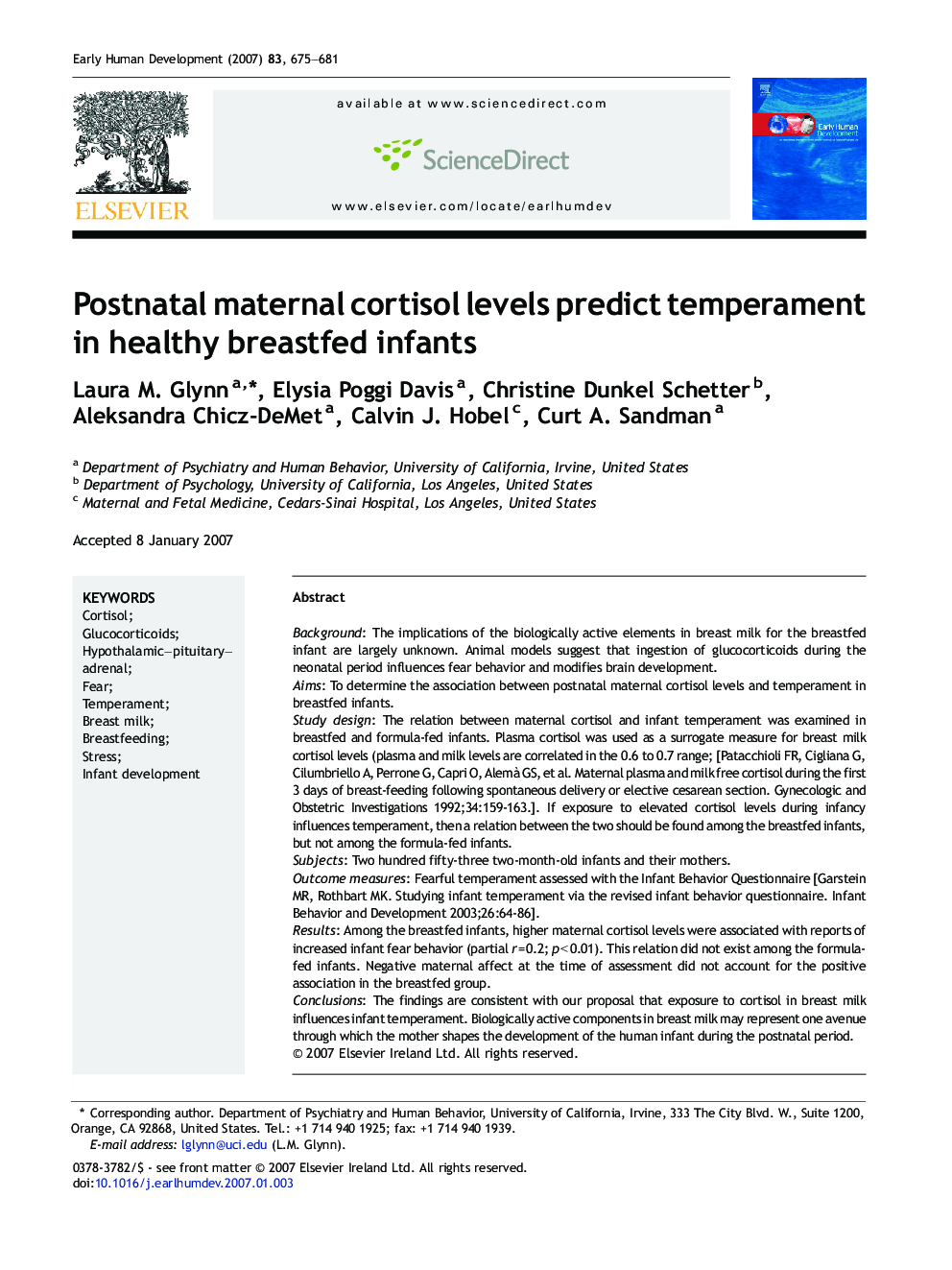| کد مقاله | کد نشریه | سال انتشار | مقاله انگلیسی | نسخه تمام متن |
|---|---|---|---|---|
| 3918051 | 1252169 | 2007 | 7 صفحه PDF | دانلود رایگان |

BackgroundThe implications of the biologically active elements in breast milk for the breastfed infant are largely unknown. Animal models suggest that ingestion of glucocorticoids during the neonatal period influences fear behavior and modifies brain development.AimsTo determine the association between postnatal maternal cortisol levels and temperament in breastfed infants.Study designThe relation between maternal cortisol and infant temperament was examined in breastfed and formula-fed infants. Plasma cortisol was used as a surrogate measure for breast milk cortisol levels (plasma and milk levels are correlated in the 0.6 to 0.7 range; [Patacchioli FR, Cigliana G, Cilumbriello A, Perrone G, Capri O, Alemà GS, et al. Maternal plasma and milk free cortisol during the first 3 days of breast-feeding following spontaneous delivery or elective cesarean section. Gynecologic and Obstetric Investigations 1992;34:159-163.]. If exposure to elevated cortisol levels during infancy influences temperament, then a relation between the two should be found among the breastfed infants, but not among the formula-fed infants.SubjectsTwo hundred fifty-three two-month-old infants and their mothers.Outcome measuresFearful temperament assessed with the Infant Behavior Questionnaire [Garstein MR, Rothbart MK. Studying infant temperament via the revised infant behavior questionnaire. Infant Behavior and Development 2003;26:64-86].ResultsAmong the breastfed infants, higher maternal cortisol levels were associated with reports of increased infant fear behavior (partial r = 0.2; p < 0.01). This relation did not exist among the formula-fed infants. Negative maternal affect at the time of assessment did not account for the positive association in the breastfed group.ConclusionsThe findings are consistent with our proposal that exposure to cortisol in breast milk influences infant temperament. Biologically active components in breast milk may represent one avenue through which the mother shapes the development of the human infant during the postnatal period.
Journal: Early Human Development - Volume 83, Issue 10, October 2007, Pages 675–681